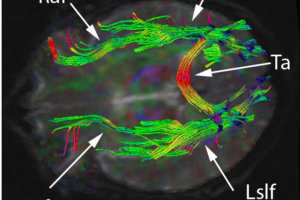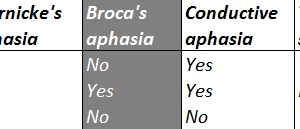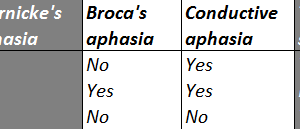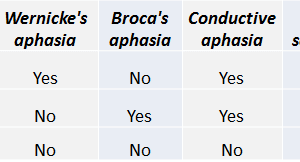Antiphospholipid syndrome (APLS; Hughes Syndrome) produces a hypercoagulable state that can predispose to ischemic strokes as well as other thrombotic events.
Diagnosis of APLS
Both clinical evidence of thrombosis and the laboratory detection of antiphospholipid antibodies are needed for a diagnosis of APLS.
The most common thrombotic events are DVTs, small vessel thromsosis, and ischemic strokes. Pregnancy-associated difficulties that are qualifying clinical events include the loss of a chromosomally and morphologically normal fetus after the 10th week of gestation (or 3 consecutive spontaneous abortions before 10 weeks), placental insufficiency, or eclampsia.
Antiphospholipid antibodies must be detected twice separated by at least 12 weeks. The antiphospholipid antibodies that should be checked include anti-cardiolipin, anti-beta2 glycoprotein 1, and lupus anticoagulant. The abnormal antibodies could be either IgG or IgM.
APLS etiology
There are three classes of APLS. In primary APLS there is no associated auto-immune disorder other than the antiphospholipid antibodies. In secondary APLS the antiphospholipid antibodies are part of an auto-immune disease like systemic lupus erythrematosus (SLE). Catastrophic antiphospholipid syndrome describes acute multi-organ failure due to diffuse thrombosis.
Treatment for APLS
Treatment is directed at reducing thrombosis. Antiplatelet therapy is typically started with aspirin. Anti-coagulation is usually indicated if both antiphospholipid antibodies and thrombotic events are documented, and the type of anti-coagulation depends on the state of the patient (no coumadin in pregnant patients since it crosses the plancenta).
Transesophageal echocardiography is recommended in APLS patients with strokes to evaluate for valvular abnormalities and cardiac thrombi (Panichpisal et al. 2012).
Plasmapheresis is sometimes required if thrombosis continues despite anti-coagulation.
References
Panichpisal, K, Rozner, E, Levine, SR. The Management of Stroke in Antiphospholipid Syndrome. Current Rheumatology Reports February 2012 14:99-106.




